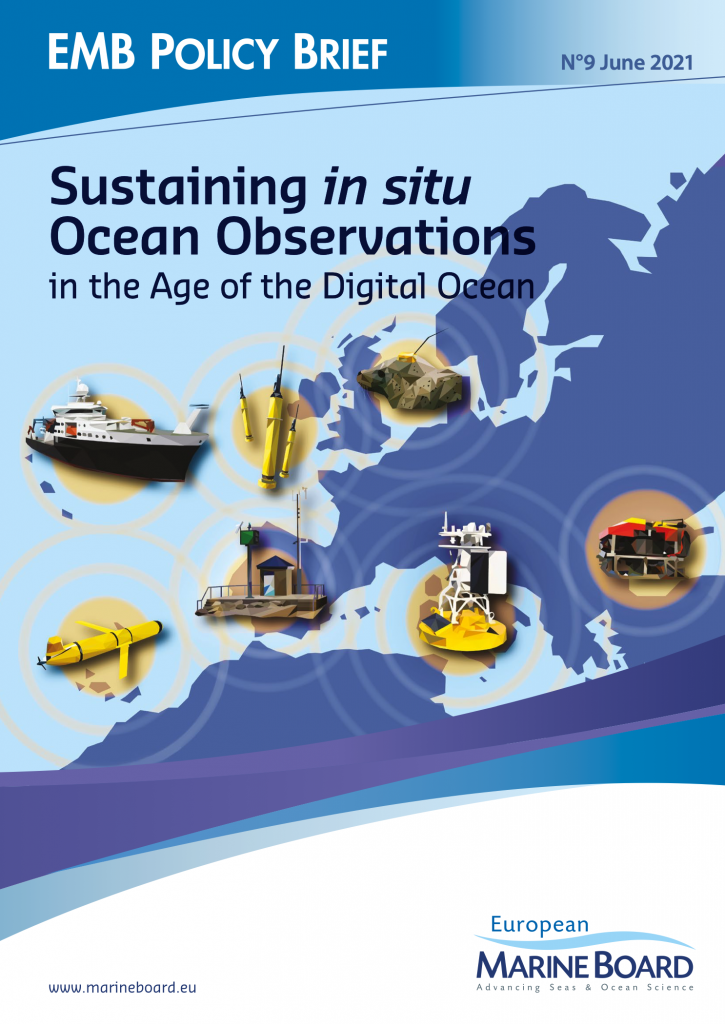On 16th June 2021, the European Marine Board (EMB) launched its policy briefing for Sustaining in situ Ocean Observations in the Age of the Digital Ocean.
The new European Marine Board (EMB) Policy Brief focuses on in situ Ocean observations and highlights their benefits, funding and governance challenges, and the investment needed for their transformation and sustainability.
As attention is now being given at the highest political levels to actions and solutions that reverse the cycle of degradation of the Ocean’s health and productive capacity, long-term sustained monitoring infrastructures, such as the JERICO-RI, become increasingly important to the design and evaluation of the impact of these actions and solutions. In addition, as the ocean is digitised, into so-called Digital Twins, there will be a need for a continuous feed of data from in situ monitoring infrastructures.
The Policy Brief proposes the recognition of in situ Ocean observations as enabling infrastructures generating public-good data, which would deliver fit-for-purpose data and information supporting sustainable development, the ‘Green Deal’ and sustainable blue economy. It also recommends that a process should be established to review the costs and performance of the system and map its economic and environmental benefits. It should build on European and global coordination efforts, create partnerships with the private sector and civil society, and be integrated with satellite observations and models. which highlights the critical needs and benefits of a fit-for-purpose business and funding model for systematic, sustained ocean observations on National, European and Global levels.
This policy brief is the result of a Working Group established by the European Marine Board to address this topic, in light of the UN Decade of Ocean Science for Sustainable Development, and the start of the Age of the Digital Ocean. This new Policy Brief aims to inform national and European policymakers, funders, and governance influencers; the G7 and G20; and UN agencies such as the Intergovernmental Oceanographic Commission (IOC) of UNESCO.

